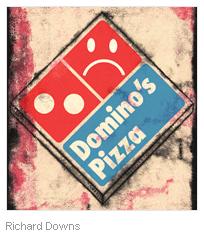I always look forward to the end of the year. Not only is it a great time to look back at all of the good things that happened during the past year, but it’s also a great time to look at your mistakes. I also love to look at the mistakes of others: so I don’t make the same mistakes. Every year Fineman PR puts out their list of the top public relations blunders. I’ve posted this for the past few years and last year I posted their top 10 public relations blunders and it was a big hit. So, here is this year’s list, the top ten public relations blunders of 2009.
1. Military’s Flop of a Photo Op
A “furious” President Obama was forced to order an internal review to determine why on April 27 a near-empty Air Force One VC-25 was allowed to fly at low altitude through Manhattan, seemingly pursued by an F-16 jet. The photo-op flyover to allow for iconic photography of Air Force One over the Statue of Liberty was arranged by the Defense Department and authorized by White House Military Office Director Louis Caldera. For people on the ground, though, it vividly recalled fears related to the 9/11 terror attacks and sent workers streaming out of office buildings and running through the streets in panic. ABC News reported that N.Y. Mayor Michael Bloomberg, who was also not informed, said that “poor judgment” would have been a nice way to describe the flyover. Caldera resigned and was replaced by deputy director George Mulligan.
2. It’s a Fork, It’s a Spoon, It’s a… Weapon? (The New York Times)
An enthusiastic six-year-old Zachary Christie, excited about having just joined the Cub Scouts, brought his Scout-style eating utensil, a combination fork-knife-spoon-can opener, to school specifically so he could eat lunch with it on September 29. Not only did officials at Delaware’s Christina School District confiscate the utensil, they suspended Zachary and sentenced the A-student to 45 days in reform school in compliance with the District’s “zero-tolerance” policy on “weapons” despite ample character evidence that the child acted naively and was not a danger. Mother Deborah Christie organized activist website helpzachary.com, sparking national media attention and sympathy for the innocent casualties of “zero-tolerance” policies, with The New York Times and other prominent publications reporting on numerous such cases. The District did allow the boy to return to school after an emergency school board meeting… that was prompted by the situation being featured on NBC’s Today.
3. Goldman Sucks, blogs Financial Post editor
After taking a severe media drubbing, it makes sense for the big banks to conduct public outreach demonstrating some level of humility. But many have criticized Goldman Sachs CEO and spokesperson Lloyd Blankfein for statements published in the November 8 edition of the UK’s Sunday Times in which Blankfein claimed the company was “doing God’s work.” Diane Francis, editor-at-large for Canada’s Financial Post, blogged that “Goldman Sucks” and derided its new small business support plan, noting that “if [the promised US $500 million] was a tip it would be an insult, particularly in New York. Goldman has set aside US $16.7 billion for year-end bonuses, equivalent to the total economic output of Bolivia or Iceland.” Huffington Post blogger Charles Gasparino blasted Blankfein, writing that “what makes Goldman so contemptible is that its level of spin has almost no basis in reality.”
4. My God, they’re throwing guitars out there.
Musician Dave Carroll was frustrated by United Airlines’ nine-month refusal to compensate him for $1,200 in repairs after he witnessed United baggage handlers literally tossing guitars, including his own $3,500 Taylor, during a transfer at O’Hare International Airport. In what Nielsen Online’s Joshua Hammond termed “a true ‘David vs. Goliath’ moment,” Carroll vowed that he would write and record songs about the experience – complete with music videos – and publish them online. The first YouTube video amassed over three million views in a single week. Within two days, United was in touch with Carroll, offering the long-awaited compensation, which he asked to be contributed to a charity of the airline’s choice. Ben Mutzabaugh of USA Today described Carroll’s success as demonstrating “just how quickly the Internet can help a disgruntled customer turn the tables on a company and its effort to manage its public image.” Unbelievably, United let Carroll down again in late October, losing his bags while he was “en route to deliver a speech about customer service,” according to CBC News.

5. Domino’s Recipe for Disaster
When footage of Domino’s Pizza employees fouling food was posted to YouTube in April, the company did not move quickly enough to counter the damage in today’s online world. Videos showing two employees performing unsanitary acts quickly amassed over one million views within 48 hours. After two painful days, Domino’s finally reacted, launching its first corporate Twitter account and posting a public apology on YouTube. According to BusinessWeek, Domino’s had become “the latest company to learn how quickly a brand can be tainted in a Web 2.0 world – and how important it is to monitor social media.”
6. Kanye West…Wanted – Chief Reality Check Officer
Storming the stage in protest at a nationally televised awards show is practically an annual event for Kanye West, but his “performance” at this year’s MTV Video Music Awards was particularly ill-advised. When an allegedly inebriated West took the microphone from teenage country artist and Best Female Video winner Taylor Swift, claiming that Beyoncé – not Swift – deserved the award, he crossed a critical line. According to Linda Holmes of NPR’s “Monkey See” blog, “when you’re a big-mouth and you get in a tangle with another big-mouth, nobody necessarily thinks the less of either one of you. You get in trouble, however, when you’re picking on people who aren’t even old enough to drink – unlike you.” Later in an interview with Jay Leno, Kanye apologized and ashamedly acknowledged that his mother would have been disappointed.
7. “Kentucky Fried Fiasco” reports Advertising Age
Fast food bastion KFC launched its new Kentucky GRILLED Chicken offering on May 4 by working with the “Oprah Winfrey Show” to announce a two-day internet coupon for a free meal. It seems like a marketer’s dream, but Advertising Age reported it as “an unmitigated disaster” when millions downloaded the coupon, and the company could not fulfill consumer demand and “actually had to rescind the offer.” While KFC did indeed accumulate a “sea of buzz” for its efforts, it failed to fulfill its promise, leaving many consumers empty-handed… and angry. Linda Holmes of NPR referred to the incident as “a massive customer-service failure,” adding that “if you throw in with Oprah, you have to be prepared to serve America – all of it, at the same time.”

8. We “Expect More” from Target
Human rights and immigration activists took aim at national chain Target for its pre-Halloween online promotion of an “Illegal Alien” costume that came complete with orange jumpsuit, extraterrestrial mask and, most controversially, a “green card” accessory. Angelica Salas, executive director of the Coalition for Humane Immigrant Rights of Los Angeles, called the costume “distasteful, mean-spirited, and ignorant of social stigmas and current debate on immigration reform.” Target spokespeople said the costumes were included in Halloween offerings “by mistake,” and pulled them from its website.
9. Housing Crisis Solved… the Malibu Way
Retreats for bailed out execs may be last year’s AIG Blunder, but the major banks still party on at home… or at someone else’s foreclosed home. A Wells Fargo executive liked a foreclosed $12-milion Malibu property so much that she allegedly took up semi-permanent residence, using it to stage “eye-catching parties,” according to the L.A. Times. What’s more, real estate agent Irene Dazzan-Palmer told the Associated Press that Wells Fargo repeatedly refused to show the beachfront Malibu Colony home to potential buyers. “[Wells Fargo’s allowing] this to happen in today’s ethically charged climate is quite suicidal,” W. Michael Hoffman, executive director of Bentley University’s Center for Business Ethics, told the Times.

10. Squawking over Tweets
Watch what you tweet or you may be the next person sued for online defamation via social media. Chicago renter Amanda Bonnen was sued by her landlord, Horizon Group Management, when she posted, “Who said sleeping in a moldy apartment was bad for you? Horizon Realty thinks it’s okay,” on May 12 after disputes with the company. The company insisted that Bonnen’s tweet somehow damaged Horizon because it was published “throughout the world.” Bonnen had a meager 22 followers on Twitter by the time she terminated her account. But Horizon’s suit was covered by major traditional and online media, including The New York Times, Associated Press, Chicago Tribune, TechDirt and the Inquisitor. The Chicago Sun-Times reported that according to a Horizon spokesperson, “the company has a good reputation it wants to preserve.” Disconnect.